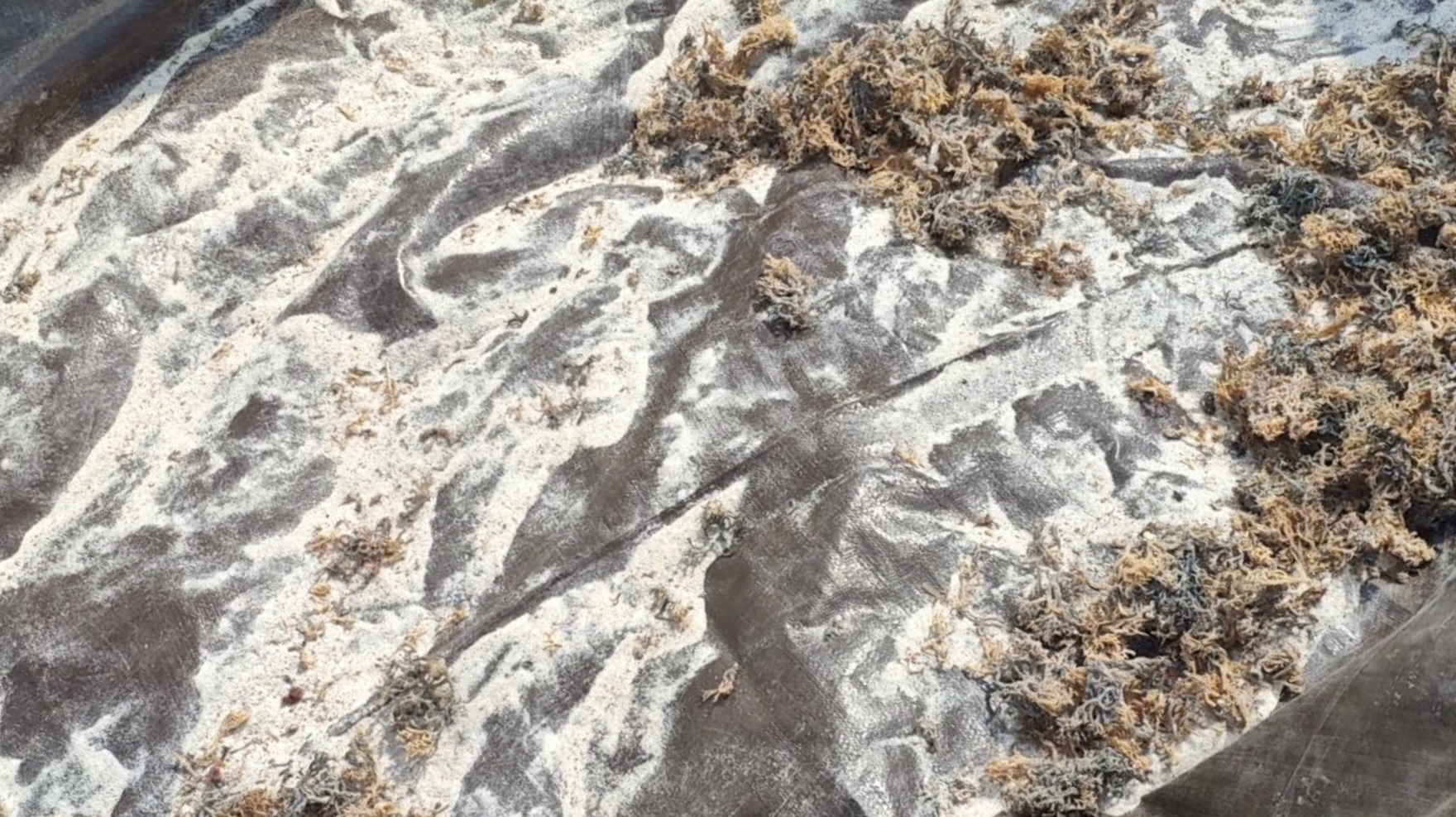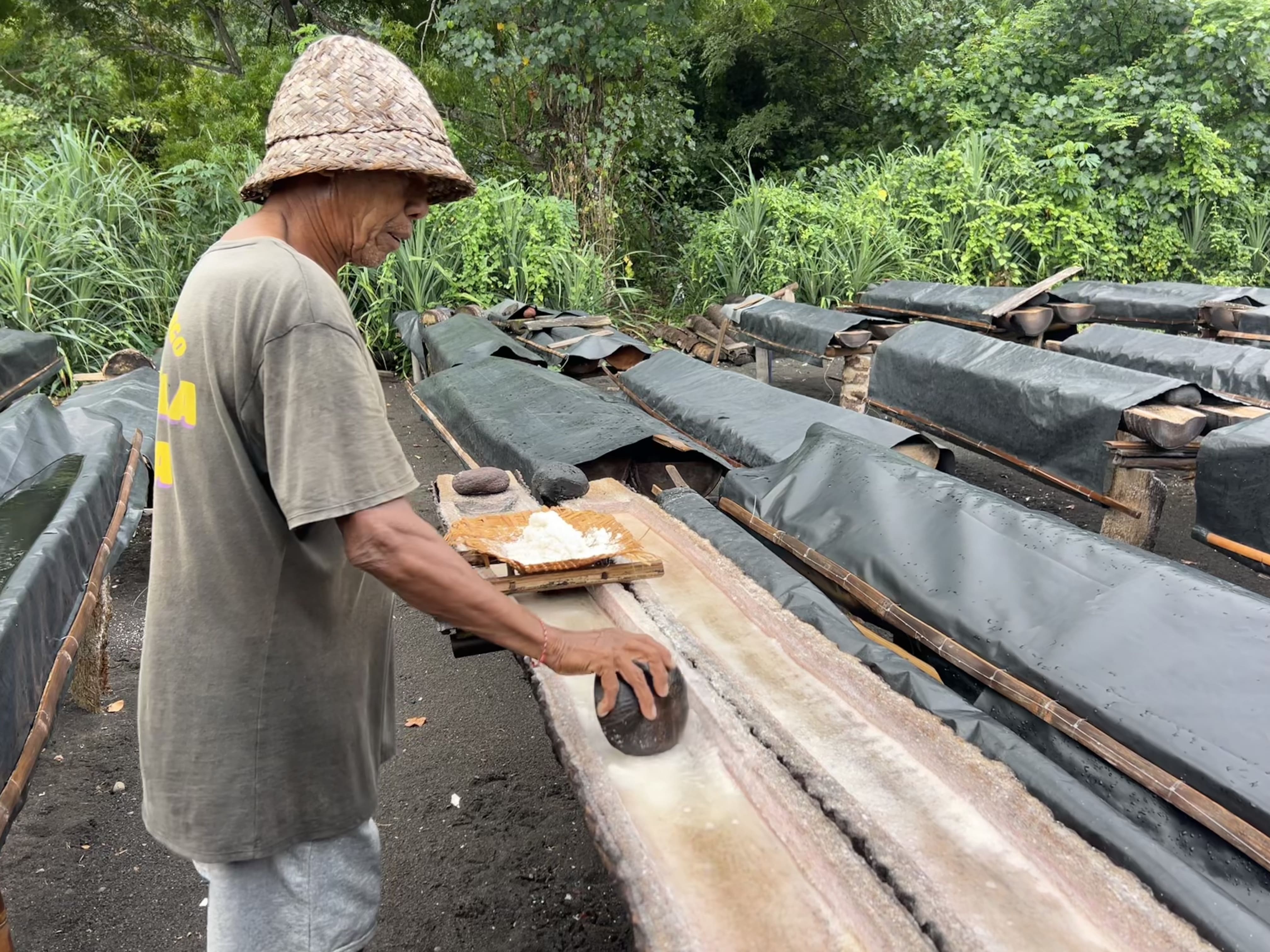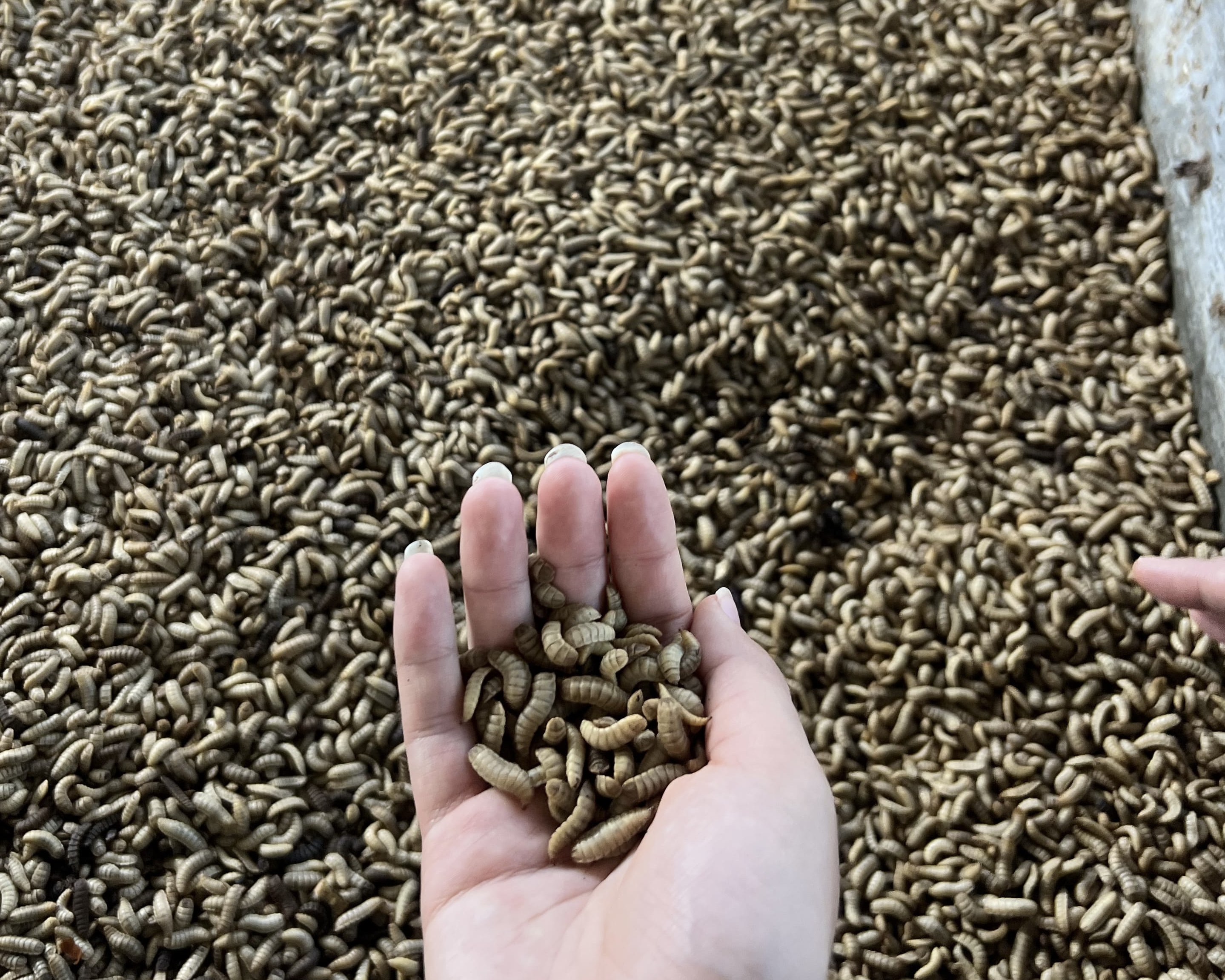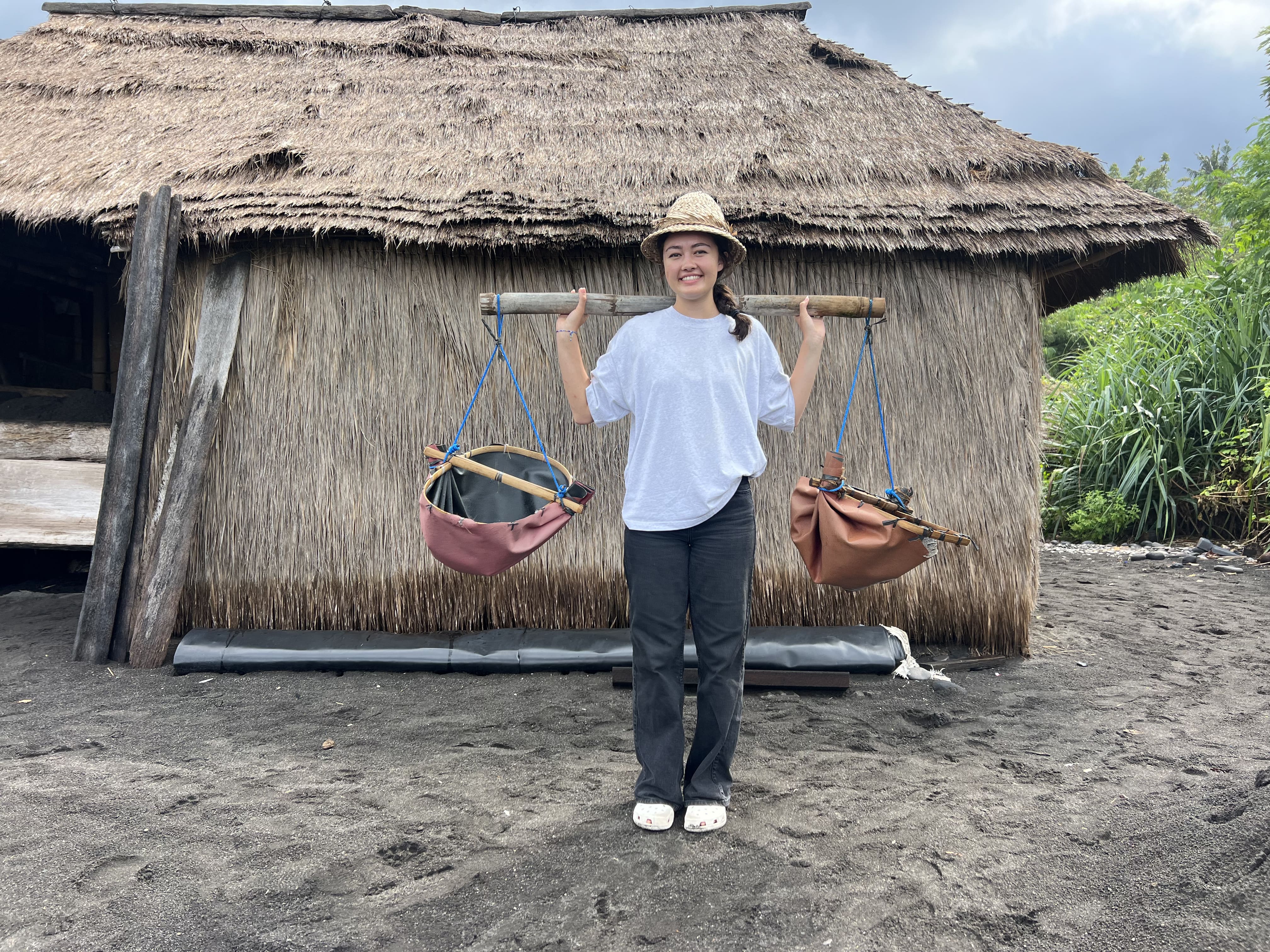Before interning with Kopernik, most of my life had been rooted in the United States—shaped by my upbringing and my studies in environmental economics at UC Berkeley. Admittedly, my understanding of rural livelihoods in developing countries was limited to what I have read or heard and not what I have witnessed or lived. That changed when I joined the Kopernik team in Indonesia.
I was immediately immersed in a culture that thrived on curiosity and experimentation of unconventional ideas. One of Kopernik’s areas of focus is supporting seaweed farmers, an often-overlooked community facing economic instability and limited market access, despite Indonesia being one of the largest global seaweed producers. On my very first day, I joined a brainstorming session exploring how the residual salt on seaweed could be transformed into a value-added product to increase farmer’s income.

Residual salt leftover after drying seaweed, typically discarded as waste
Drawing on available data and literature from across ASEAN countries, our team assessed the feasibility of adapting these traditional methods into a business practice seaweed farmers could easily implement. Still, it wasn’t until we traveled to Kusamba, East Bali, where salt production is still done entirely by hand, that we were able to refine the possibilities. Learning from these salt farmers’ generational knowledge offered a depth of expertise beyond desk research. We used these insights to adapt traditional methods to the needs of seaweed farmers. Our prototype of artisan seaweed salt is currently in development through ongoing lean experimentation. But at Kopernik, even if the initial idea doesn’t work, failure isn’t final. Every attempt becomes a stepping stone to the next solution.

Final stages of traditional salt production methods observed in Kusamba, East Bali
This experience gave me a new understanding of what socially impactful Research and Development (R&D) can look like when grounded in a community committed to a meaningful vision. I saw this approach come to life not only in the seaweed salt project, but also in Kopernik’s spin-off intrapreneurship where experimentation isn’t just encouraged, it’s actively nurtured.
I witnessed this spirit in Magi Farm, which turns food waste into valuable resources such as high-protein animal feed and sustainable fertilizer using black-soldier-fly larvae, and in Sobean, which produces high-quality coffee while building a new generation of young farmers.

Black soldier fly larvae being cultivated at Magi Farm to process organic waste
Kopernik’s people-first approach is visible at every level. The organization invests boldly in transformative ventures, yet it also shows the same care and commitment to interns like me. Through one-on-one mentorship, I gained insights far beyond formal training, lessons in purposeful living, cultural understanding, and building value-aligned partnerships.
What made the biggest impression on me, beyond the fieldwork, was the people. Across departments and backgrounds, I was surrounded by passionate individuals committed to improving lives and embodying what it means to work in service of both people and the planet. Working at Kopernik was humbling. I arrived eager to contribute, but I left having learned far more than I ever expected—from the field, the community, and my colleagues.

Visiting Kusamba salt farm on field work day and learning traditional salt production
I could never forget the lessons I had the opportunity to experience. Standing on a coastline in Kusamba, I watched salt farmers carry heavy buckets of seawater while demonstrating their salt production processes. At Magi Farm, I witnessed the passion of its founders as they worked to build a circular economy from food waste. At Sobean, I saw firsthand the urgent need to engage young people in farming before that entire way of life disappears. These were not theories, they were lived realities. It was a privilege to learn from them, and I carry these lessons and perspectives forward with me.
Before this, my learning had been confined to lectures and textbooks. But this summer, I witnessed the urgent need for improved waste management, pollution reduction, and agricultural economic development. It solidified my aspiration to build a career rooted in global impact and innovation. I leave with a deep appreciation for Kopernik’s mission and a clearer vision of what’s possible when people are empowered to find what works.
Written by: Haley Garret.


